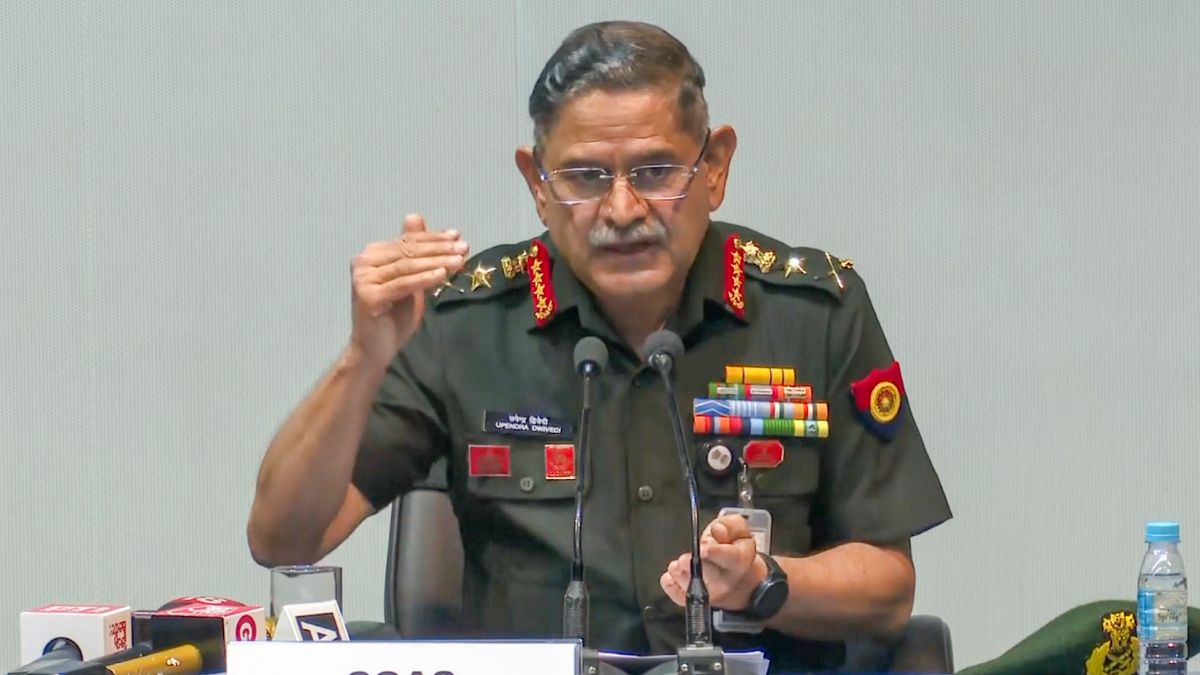Indian Army chief General Upendra Dwivedi is set to begin his four-day visit to Nepal today (November 20). As he embarks to the neighbouring country to boost military ties, the shadow of India’s Agnipath scheme looms large over his trip.
The Himalayan nation has refused to allow its ethnic Gorkha community to join the Indian armed forces under the recruitment scheme. This is a worry for New Delhi amid China’s growing strategic inroads into landlocked Nepal.
Let’s take a closer look.
India’s Gorkha soldiers
Nepal’s Gorkhas have been recruited in the Indian Army for decades under a tripartite agreement between Nepal, India and Britain signed in 1947.
This pact allows the Indian and British armies to continue the Gorkha recruitment. While six Gorkha regiments went to independent India, four remained with the British Army.
“The main point of the agreement was to offer the same terms and conditions to Gorkhas from Nepal as applicable to the Indian citizens. This has been followed by the Indian government since Independence with full commitment. The Gorkha soldiers have fought as part of the Indian Army making the highest degree of sacrifice in all the wars as well as during counterinsurgency and counterterrorism operations in the Valley,” Centre For Joint Warfare Studies (CENJOWS) chairman Major General Ashok Kumar (retired) told India Today TV.
Nepali Gorkhas, known for their grit and bravery, have fought in India’s wars with China and Pakistan. They enjoy strong ties with the Indian military.
Currently, the Indian Army has seven Gorkha regiments, with about 35,000 Nepali citizens serving in these units.
Before the Agnipath scheme was implemented in September 2022, India used to recruit 1,400 Nepali nationals on average into its Army every year, as per BBC.
Around 120,000 Gorkhas in Nepal who served in the Indian Army receive pension and other benefits, which have contributed to the economy of the Himalayan nation.
Nepal’s objection to Agnipath scheme
Nepal has halted the recruitment of the Gorkhas to the Indian Army since 2022 when India rolled out the Agnipath scheme.
Under this plan, soldiers are hired to the Indian armed forces for four years of service , without pension or ex-servicemen benefits. Known as Agniveers, only the top performing 25 per cent of these recruits are retained for the central security forces.
The others get a lump sum payment of over Rs 11 lakh at the end of their short-term contract.
These rules will be applicable to the Gorkha soldiers. The short-term enlistment plan has spooked Nepal which believes it could increase its risk from insurgents.
“There is a danger that a person with four years of military combat training can be recruited by any insurgent group in the country or even by foreign mercenaries,” Prem Singh Basnyat, a Nepalese military historian and a retired army officer, told BBC last year.
Nepal was gripped by a decade-long rebellion by Maoists until 2006 which killed thousands.
As per India Today, the Indian Army has a shortage of over 12,000 Nepali Gorkhas.
The Gorkha Rifles is trying to fill the shortfall by hiring India-domicile Gorkhas from Darjeeling, Dehradun, Dharamshala and other regions, along with Garhwalis and Kumaonis. However, it is unable to bridge the gap.
“Taking the COVID-19 pandemic also into account, Nepal-domicile Gorkhas have not been recruited into the Indian Army, including the seven illustrious regiments of the Gorkha Rifles, for almost five years now. This does not augur well for bilateral relations. The two governments must work out a mutually acceptable solution,” a senior officer told TOI.
Nepal’s decision not to allow its Grokhas to join the Indian Army has hurt the suppliers of khukuri – a type of knife, especially in Uttarakhand. It is carried by Gorkha soldiers as a service weapon.
A supplier from Garhi Cantonment in Dehradun told TOI that their business has shrunk by 50-60 per cent. “Earlier, our annual supply was nearly 5,000, but it has now come down by more than half. As recruitment in the Gorkha Brigade and our supply are interrelated, it was no surprise that our business got impacted,” the supplier said.
Indian Army chief in Nepal
The Indian Army chief will be in Nepal from November 20 to 24 to reinforce the deep-rooted military ties between the two countries.
General Dwivedi’s visit has raised expectations that there may be a breakthrough in the stalled recruitment of Gorkhas into the Indian Army.
“India and Nepal have the best relationship, but the same is being subverted by China. It is therefore essential that a higher degree of statesmanship is displayed to bring back the Gorkha soldiers into the fold of the Indian Army,” Major General Kumar (retired) told India Today.
With inputs from agencies
)